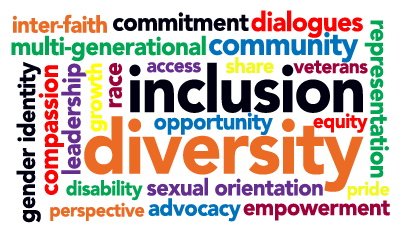Skip to content

- All of the trainings are constructed with consultation with the organisation or the group that desires me to facilitate their diversity training. The formats here are to give as an idea of how the diversity training sessions might be carried out, and what the facilitation might look like. This is not exhaustive, and consultation before I design a training program is necessary to have a better understanding of the organisation and its needs.
- The trainings are broken into three categories, 1-Day training, 2-Day training (1-Day training with a follow training with smaller groups in the organisation), and a 3-Day training. Different organizations have different needs that are affected by size, culture, the products they sell, the organisational culture, and even past diversity trainings, which all affects what kind of training will be suitable for an organisation.
- It must be clear that both the training outcomes, and the training content will highly depend on what the organisation desires. I offer diversity training and facilitation for different organisational needs. For example, for the most part, the 1-day training I offer as a general diversity training course. It can be tailored, but in general it covers the most important elements of diversity. The 3-day training covers important diversity topics in-depth, it can also be tailored to focus on “Cultural Diversity” training, or “LGBT Inclusivity” training, or “Race and Racism” training. The trainings are conducted in a public seminar engagement and discussion.
Training Outcomes
- A better understanding of the concept of “diversity”
- A better understanding of the power of difference
- A better understanding of power and how power operates
- A better understanding of power in the work place/community/ classroom/and other group setting
- A better understanding how cultures are mobile
- A better understanding that your belief systems is only one of many
- A better understanding that behaviours and ways of thinking are to be engaged respectively and with empathy
- A better understanding that behaviours and ways of thinking can be changed
- Developing skills to manage change, because is going to come
- Develop competencies to see opportunity in change
- A better understanding of discrimination and its effects
- A better understanding processes of recourse in grievances
- Developing a constructive language to speak about difficult issues such as racism and sexism in different settings
- Understanding the Employment Equity and Affirmative Action and how they can be used to better an organisation
- Developing skills to deal with diversity related conflicts in organisations and other group settings
- Develop skills that encourage empathy in the workplace
- Develop a culture that manages diversity in constructive ways
- Develop competencies that can capitalize on diversity in an organisation
- Develop skills to draw on the strengths that are created by the diversity in the organisation
- Develop skills to intervene effectively in stereotypical actions and attitudes
- Develop a culture of inclusivity
- Develop a culture of appreciating those who “do not fit in”
- Develop a culture that looks at “not fitting in” as an opportunity for growth in seeing from another point of view
- Develop skills to manage diversity in the organisation
- Develop skills to effect organizational change
Course Content
- Readings and exercises on
- Sexuality, and Gender Identity
- Culture and Ethnic Identity
